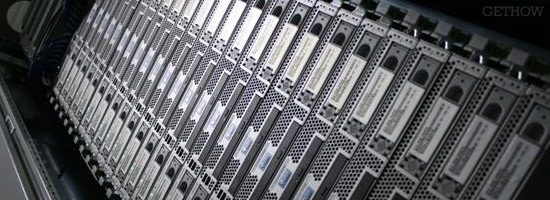When people discuss virtualization, they are generally referring to server virtualization, which involves dividing a physical server into several virtual machines or devices. Each server may interact individually with other servers, applications, users and data as if this were another physical server.
Different virtual servers may run different operating systems as well as multiple programs simultaneously while using the resources of just one computer. And since every virtual device is separate from other virtualized device, if one fails to function, it will not affect the other.
Why Should a Small Organization Use Virtual Servers And Cloud Computing?
Virtualization will help you move your focus from managing boxes to improving the services you provide to your customers. If you manage several servers and desktops then virtualization can assist you in following ways:
1. Save Cash
Businesses frequently run just one application on each server as they do not want to endanger other machines. Estimations suggest that the majority of x86 servers are using just 10 to 15 % of their complete capacity. With virtualization, you can turn a single purpose server into a multi-tasking machine, as well as turn multiple servers into a computing pool that can be much more flexible.
With the help of virtual servers you can make use of your business capital to enhance business methods, not fund the IT equipment. Virtual servers allows you to rent just the computer resources you need. All hardware, virtualization maintenance as well as upgrades aren’t the part of your company’s budget or responsibility.
2. Save Energy
Businesses spend lots of money on powering unused servers. Virtualization reduces the quantity of physical servers, which cuts down on the energy necessary to operate them.
3. Save Time
With less servers, you spend less time on manual duties required for the upkeep of servers. Apart from this, you can easily perform tasks related to archiving, backup and recovery. It is also much faster to set up a virtual device than it is to deploy a new physical server.
4. Enhanced Business Continuity
All virtual servers include daily offsite back-up, which takes an entire snapshot of your system. Depending on the chosen plan these snapshots are saved for a period of 4 weeks. High Accessibility (HA) can also be included to supply additional safety against equipment failure.
5. Operational Flexibility
A virtual server makes your IT infrastructure flexible. As the needs of your server change, your plan could be modified to satisfy these new requirements. These changes may often be applied with little or no downtime.
What to Consider?
Because virtualization makes it simple to set up new virtual machines, you may end up getting too many machines to manage. Every server should be managed as though it were a physical server. Keeping track of how your virtual resources are utilizing physical resources is also crucial. So, look for solutions that make it easy for you to measure the utilization.
Virtualization is not a wonder cure for everything. While most of the applications can be run easily, applications that need a lot of storage and processing power should be left for a dedicated server to handle.
